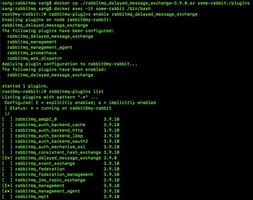AnsibleFacts变量详解

Ansible Facts 变量详解与使用案例
主机规划
添加用户账号
说明:
1、 运维人员使用的登录账号;
2、 所有的业务都放在 /app/ 下「yun用户的家目录」,避免业务数据乱放;
3、 该用户也被 ansible 使用,因为几乎所有的生产环境都是禁止 root 远程登录的(因此该 yun 用户也进行了 sudo 提权)。
1# 使用一个专门的用户,避免直接使用root用户2# 添加用户、指定家目录并指定用户密码3# sudo提权4# 让其它普通用户可以进入该目录查看信息5 useradd -u 1050 -d /app yun && echo"123456" | /usr/bin/passwd --stdin yun6echo"yun ALL=(ALL) NOPASSWD: ALL" >> /etc/sudoers7chmod755 /app/
Ansible 配置清单Inventory
之后文章都是如下主机配置清单
1 [yun@ansi-manager ansible_info]$ pwd2 /app/ansible_info
3 [yun@ansi-manager ansible_info]$ cat hosts_key
4 # 方式1、主机 + 端口 + 密钥
5[manageservers]
6172.16.1.180:22
7
8[proxyservers]
9172.16.1.18[1:2]:22
10
11 # 方式2:别名 + 主机 + 端口 + 密码
12[webservers]
13 web01 ansible_ssh_host=172.16.1.183 ansible_ssh_port=22
14 web02 ansible_ssh_host=172.16.1.184 ansible_ssh_port=22
15 web03 ansible_ssh_host=172.16.1.185 ansible_ssh_port=22
Facts 概述
Ansible Facts 是 Ansible 在被托管主机上自动收集的变量。它是通过在执行 Ad-Hoc 以及 Playbook 时使用 setup 模块进行收集的,并且这个操作是默认的。
因为这个收集托管主机上的 Facts 比较耗费时间,所以可以在不需要的时候关闭 setup 模块。收集的 Facts 中包含了托管主机特有的信息,这些信息可以像变量一样在 Playbook 中使用。
收集的 Facts 中包含了以下常用的信息:
主机名、内核版本、网卡接口、IP 地址、操作系统版本、环境变量、CPU 核数、可用内存、可用磁盘 等等……。
使用场景:
- 通过 facts 检查 CPU,生成对应的 Nginx 配置文件
- 通过 facts 检查内存情况,定义不同的 MySQL 配置文件或 Redis 配置文件
- 通过 facts 检查主机 hostname,生成不同的 zabbix 配置文件
获取指定受控端的 facts 信息
1 [yun@ansi-manager ansible_info]$ pwd2 /app/ansible_info
3 [yun@ansi-manager ansible_info]$ ansible 172.16.1.181 -m setup -i ./hosts_key
4172.16.1.181 | SUCCESS => {
5"ansible_facts": {
6"ansible_all_ipv4_addresses": [
7"10.0.0.181",
8"172.16.1.181"
9 ],
10 ………………
如何在 playbook 中关闭 facts
1 [yun@ansi-manager object03]$ pwd2 /app/ansible_info/object03
3 [yun@ansi-manager object03]$ cat test_facts.yml
4 ---
5# facts 使用
6 - hosts: proxyservers
7 # 关闭 facts 变量
8 gather_facts: no
9
10 # 这时就不能取到 ansible_hostname、ansible_eth0.ipv4.address、ansible_eth1 ["ipv4"]["address"] 变量信息
11 tasks:
12 - name: "get ansible facts var"
13 debug:
14 msg: "This host name is {{ ansible_hostname }} ,eth0: {{ ansible_eth0.ipv4.address }}, eth1: {{ ansible_eth1["ipv4"]["address"] }}"
Facts 案例-获取主机名和网卡信息
获取受控端的主机名,内网地址和外网地址
1 [yun@ansi-manager object03]$ pwd2 /app/ansible_info/object03
3 [yun@ansi-manager object03]$ ll
4 total 4
5 -rw-rw-r-- 1 yun yun 241 Aug 2210:41 test_facts.yml
6 [yun@ansi-manager object03]$ cat test_facts.yml
7 ---
8# facts 使用
9 - hosts: proxyservers
10
11 tasks:
12 - name: "get ansible facts var"
13 debug:
14 msg: "This host name is {{ ansible_hostname }} ,eth0: {{ ansible_eth0.ipv4.address }}, eth1: {{ ansible_eth1["ipv4"]["address"] }}"
15 #### 上面写了两种方式引用变量,推荐使用后一种引用方式
16
17 [yun@ansi-manager object03]$ ansible-playbook -b -i ../hosts_key test_facts.yml
18
19 PLAY [proxyservers] ***********************************************************************************************
20
21 TASK [Gathering Facts] ********************************************************************************************
22 ok: [172.16.1.181]
23 ok: [172.16.1.182]
24
25 TASK [get ansible facts var] **************************************************************************************
26 ok: [172.16.1.181] => {
27"msg": "This host name is ansi-haproxy01 ,eth0: 172.16.1.181, eth1: 10.0.0.181"
28}
29 ok: [172.16.1.182] => {
30"msg": "This host name is ansi-haproxy02 ,eth0: 172.16.1.182, eth1: 10.0.0.182"
31}
32
33 PLAY RECAP ********************************************************************************************************
34172.16.1.181 : ok=2 changed=0 unreachable=0 failed=0 skipped=0 rescued=0 ignored=0
35172.16.1.182 : ok=2 changed=0 unreachable=0 failed=0 skipped=0 rescued=0 ignored=0
Facts 案例-模拟zabbix客户端配置
根据受控端主机名的不同,在受控端生成不同的配置文件
1 [yun@ansi-manager object03]$ pwd2 /app/ansible_info/object03
3 [yun@ansi-manager object03]$ ll
4 total 32
5 drwxrwxr-x 2 yun yun 58 Aug 2212:31file
6 -rw-rw-r-- 1 yun yun 224 Aug 2212:33 test_zabbix_agentd.yml
7 [yun@ansi-manager object03]$ catfile/vars_file.yml # playbook 变量
8 zabbix_server: 172.16.1.180
9
10 [yun@ansi-manager object03]$ catfile/zabbix_agentd_temp.conf.j2 # 模拟 zabbix_agentd 配置文件
11# 模拟 zabbix_agentd 配置文件
12
13# zabbix 服务端配置
14 Server={{ zabbix_server }}
15 ServerActive={{ zabbix_server }}
16
17# zabbix 客户端配置
18 Hostname={{ ansible_hostname }}
19
20 [yun@ansi-manager object03]$ cat test_zabbix_agentd.yml # 具体的 yml 文件
21 ---
22# zabbix 配置
23 - hosts: proxyservers
24 vars_files: ./file/vars_file.yml
25
26 tasks:
27 - name: config zabbix_agentd
28 template:
29 src: ./file/zabbix_agentd_temp.conf.j2
30 dest: /tmp/zabbix_agentd_temp.conf
31
32 [yun@ansi-manager object03]$ ansible-playbook -b -i ../hosts_key --syntax-check test_zabbix_agentd.yml # 语法检测
33 [yun@ansi-manager object03]$ ansible-playbook -b -i ../hosts_key -C test_zabbix_agentd.yml # 预执行,测试执行
34 [yun@ansi-manager object03]$ ansible-playbook -b -i ../hosts_key test_zabbix_agentd.yml # 执行
受控端1配置文件查看
1 [yun@ansi-haproxy01 ~]$ cat /tmp/zabbix_agentd_temp.conf 2# 模拟 zabbix_agentd 配置文件34# zabbix 服务端配置
5 Server=172.16.1.180
6 ServerActive=172.16.1.180
7
8# zabbix 客户端配置
9 Hostname=ansi-haproxy01
受控端2配置文件查看
1 [yun@ansi-haproxy02 ~]$ cat /tmp/zabbix_agentd_temp.conf 2# 模拟 zabbix_agentd 配置文件34# zabbix 服务端配置
5 Server=172.16.1.180
6 ServerActive=172.16.1.180
7
8# zabbix 客户端配置
9 Hostname=ansi-haproxy02
———END———
如果觉得不错就关注下呗 (-^O^-) !
以上是 AnsibleFacts变量详解 的全部内容, 来源链接: utcz.com/z/515910.html









